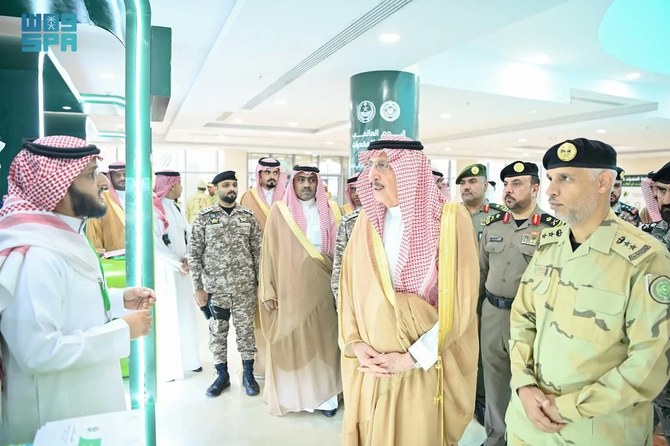RIYADH: Saudi Arabia has doubled down on its campaign to combat drug use and those who engage in the trafficking and financing of illicit substances.
National Center for Security Operations Commander Colonel Omar bin Aida Al-Talhi said the goal of the initiative was to “eliminate” drugs and “protect society and its youth from their effects.”
His announcement coincided with International Day Against Drug Abuse and Illicit Trafficking, which was set up by the UN in 1987 and falls annually on June 26.
World Anti-Drug Day, as the event is commonly known, was “an important day that emphasizes the harm of drugs and their impact on nations, societies and individuals, which requires fighting them in various ways and taking the initiative to report smugglers and dealers,” Al-Talhi said.
“Thanks to society’s awareness, high sense of responsibility and integration with the security authorities, this has resulted in cooperation in reporting drug cases to neutralize their danger.”
He said the NCSO, represented by the Unified Security Operations Centers (911) in Makkah, Riyadh and Al-Sharqiyah, received reports about drug smugglers and dealers and passed them on to the relevant authorities.
Jazan Governor Prince Mohammed bin Nasser on Wednesday inaugurated the activities of World Anti-Drug Day, whose slogan this year is “The Evidence is Clear … Let’s Invest in Prevention,” at the Prince Sultan Cultural Center.
The venue is staging an exhibition to spread awareness of the health, social and cultural impact of drugs and the efforts being made to prevent their spread and use.
Director of Public Security Lt. Gen. Mohammad bin Abdullah Al-Bassami said the drugs trade was a cross-border issue that created challenges for countries around the world.
In Saudi Arabia, the government prioritized the protection of its citizens and tackling any threats to national security, he said.
The Kingdom’s war on drugs, directed by Crown Prince Mohammed bin Salman and overseen by Minister of Interior Prince Abdulaziz bin Saud, has yielded positive results.
Al-Bassami said the nation’s security forces were committed to protecting society, and especially young people, from the scourge of the drugs trade and urged all citizens to remain vigilant to the ongoing threat.
Undersecretary of the Ministry of Interior for Security Regiment Affairs, Maj. Gen. Awad bin Mashouh Al-Enezi said World Anti-Drug Day was an occasion to raise awareness of the dangers of drugs and reiterated the efforts being made by his ministry to tackle and punish those who engaged in it.
Director General of the Border Guard Maj. Gen. Shayea bin Salem Al-Wadaani said the Kingdom had made great efforts in combating drugs and protecting society.






























